In Florida, Which of the Following Requires a Boating Accident Report? Essential Guidelines
In Florida, boating safety is taken very seriously, and certain situations require a boating accident report to be filed to ensure the welfare of all boaters on the water. One such situation is when a boating accident results in bodily injury, a death, a person's disappearance, or property damage exceeding $2,000. Consequently, it is crucial for all vessel operators and boaters to be familiar with Florida's boating laws and the reporting requirements of various accidents.
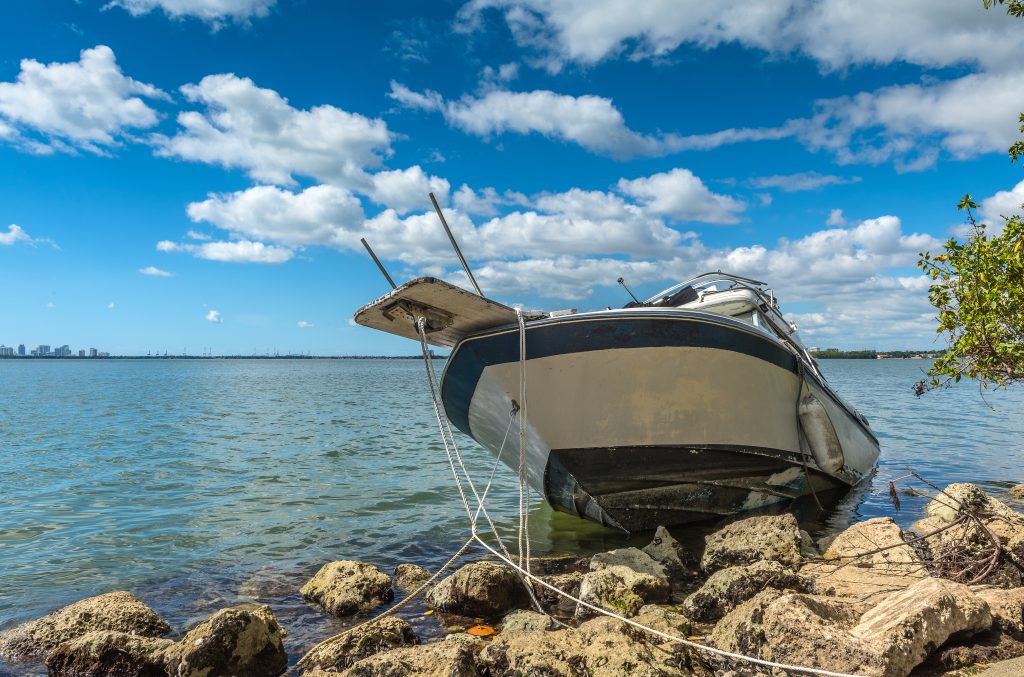
Understanding these requirements not only helps boaters comply with the law but also promotes safety and awareness on the water. Boat operators must be diligent in reporting accidents within the specified time frames. Failure to do so can lead to penalties and, in some cases, liability for damages caused during the accident. By remaining knowledgeable and vigilant, boaters can contribute to a safer boating experience for everyone.
Key Takeaways
- Boating accidents in Florida that result in injury, death, disappearance, or significant property damage must be reported.
- Familiarity with Florida's boating laws and reporting requirements is essential for all vessel operators.
- Complying with the law and reporting accidents promotes safety and accountability on the water.
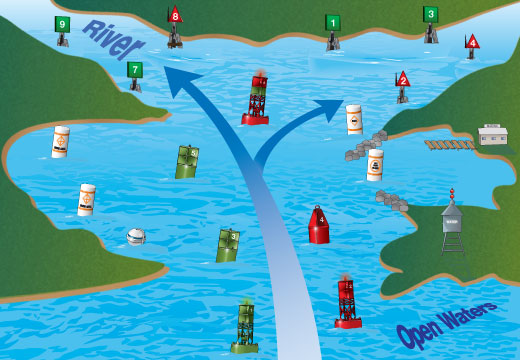
Outline of Florida's Boating Laws
Florida's boating laws are designed to promote safety and responsible use of state waterways. The Florida Fish and Wildlife Conservation Commission (FWC) enforces these regulations in collaboration with the Division of Law Enforcement.
One key aspect of Florida's boating laws is the requirement for boating accident reports to be filed in certain situations. A report must be submitted if there is a boating accident involving death, disappearance of a person, injury requiring medical treatment beyond first aid, or property damage exceeding $2,000.
The National Association of State Boating Law Administrators (NASBLA) approved boating safety education courses are mandatory for individuals born on or after January 1, 1988, who wish to operate a vessel powered by a motor of 10 horsepower or greater. The FWC provides a statewide program for boating safety instruction to ensure compliance with this law.
Upon successful completion of a NASBLA-approved boating safety education course, an individual receives a Boating Safety Education Identification Card. This card must be in the possession of the boat operator while on Florida waterways to prove they have met the mandatory education requirements.
Besides, recent amendments to Florida's boating laws include the creation of the Boating Safety Act of 2022, focusing on improving safety through increased penalties for violations and added requirements for boat rental operations. Rental companies must obtain a no-cost permit from FWC and adhere to additional regulations as per the act.
In conclusion, Florida's boating laws aim for the safety and responsible use of the state's waterways while providing essential education and instruction to boat operators. Compliance with these laws is crucial in ensuring a secure and enjoyable boating experience for all.
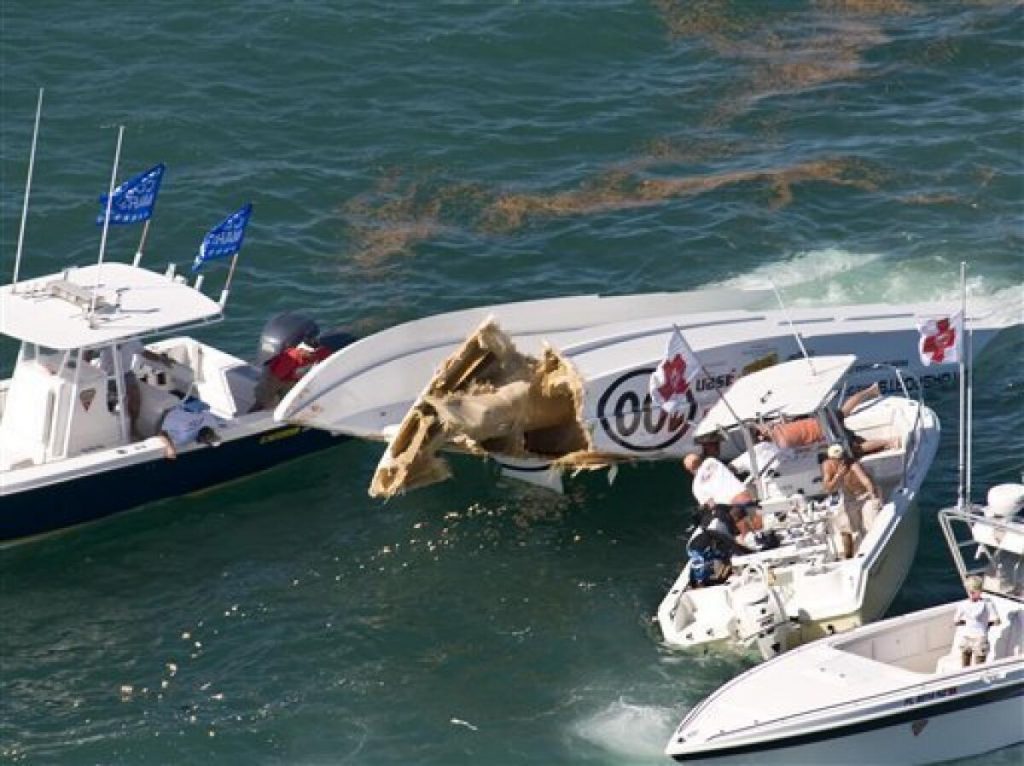
Boating Accidents in Florida
Florida is known for its beautiful waters and boating activities. Unfortunately, boating accidents can occur, often resulting in casualties, property damage, or missing persons. The state has specific requirements for when a boating accident report must be filed.
A Florida boating accident report is necessary when any of the following situations occur:
- There is a fatality within 24 hours of the accident.
- One or more occupants of the vessel suffer injuries requiring medical attention beyond first aid.
- A person disappears from the boat under circumstances indicating possible death or injury.
- The accident results in at least $2,000 worth of property damage.
The Florida Fish and Wildlife Conservation Commission (FWC) releases an annual Boating Accident Statistical Report to provide insight into the number, causes, and outcomes of boating accidents. In 2020, Florida saw 836 boating accidents, which was the highest number since 2011. This represented a 16% increase from 2019. Furthermore, there were 79 boating-related deaths in 2020, also the highest figure in that same time frame.
Boating safety is of utmost importance, and understanding the factors that contribute to accidents is key to prevention. In many cases, boating accidents involve collisions with other vessels or fixed objects. People falling overboard and drowning are also common scenarios. To mitigate the risks and ensure a safer boating experience, it is critical that boaters follow safety guidelines, wear life jackets, and practice responsible navigation.
By being proactive in boating safety and following Florida's guidelines for reporting accidents, the state's boating community can work together to minimize incidents and help keep everyone safe on the water.
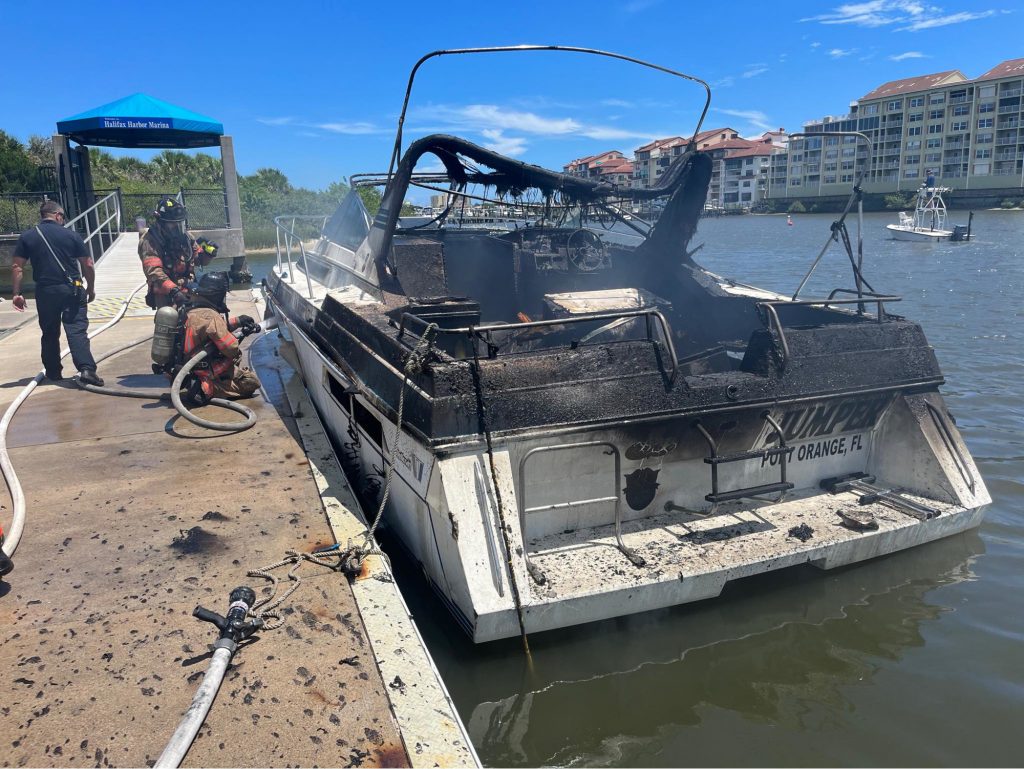
Reporting Requirements for Boating Accidents
In Florida, state law mandates the filing of a boating accident report under certain circumstances. These reporting requirements are in place to ensure the safety of all parties involved and to assist authorities in their investigations.
Per Florida Statute 327.301, a written boating accident report is required if the accident results in any of the following:
- Bodily injury requiring medical treatment beyond first aid
- Death of any person involved in the boating accident
- Disappearance of any person from the vessel, under circumstances that indicate possible death or injury
- Property damage in excess of $2,000
It is crucial for the individuals involved in a boating accident meeting any of the criteria above to promptly report the incident to the appropriate authorities. Delaying or neglecting to file a report can result in fines, penalties, and further complications in any legal proceedings.
To report a boating accident in Florida, contact one of the following entities, depending on the location of the accident:
- The Division of Law Enforcement, Florida Fish and Wildlife Conservation Commission (FWC)
- The county sheriff's office where the accident took place
- The municipality police department where the accident occurred
Following the correct reporting procedures will not only ensure compliance with state law but also expedite the process of investigating the accident and determining any necessary actions to prevent future incidents. By adhering to these guidelines, boaters can contribute to maintaining a safe and enjoyable boating environment in Florida.

Boating Accident Involving Injury or Death
In Florida, a boating accident that involves injury, death, or the disappearance of a person requires a boating accident report to be filed. Under Florida Statute § 327.301, a written boating accident report is necessary when these unfortunate situations occur. It is important for boat operators to be aware of the reporting requirements and take the necessary actions to ensure the safety of everyone involved.
When an accident occurs, the first priority should be to provide immediate first aid to any injured individuals. This may include performing CPR, applying pressure to stop bleeding, or immobilizing an injured limb. It is crucial to remain calm and focused during these situations, as prompt and proper medical attention can greatly impact the outcome for those affected by the incident.
In cases involving injury or death, a law enforcement officer must investigate the boating accident within 24 hours of completing their on-site evaluation. The officer will gather information and forward a written report to the appropriate agencies, including the Florida Fish and Wildlife Conservation Commission - Law Enforcement Division, the local sheriff's office, or the local police department, depending on the location of the accident1.
It's critical for boat operators to be knowledgeable about safety measures and prepared to respond in case of a boating accident. This includes being aware of the conditions that require a written boating accident report and fulfilling their obligation to alert the proper authorities. By following these procedures, the safety of everyone involved can be ensured and the severity of injuries or damages can be minimized.

Vessel Operation and Regulations
In Florida, boat operators must be aware of the regulations governing vessel operation and registration. The state has specific requirements for different situations, including when a boating accident report must be filed.
A boating accident report is required under Florida law when any of the following conditions are met: a person's death, an injury requiring medical treatment beyond first aid, the disappearance of a person from the boat under circumstances that indicate death or injury, or the occurrence of substantial property damage source. It is crucial for boat operators to adhere to these requirements, as failure to do so can lead to legal consequences.
Florida's boating regulations also cover vessel registration, motor usage, and operator conduct, including reckless and careless operation, as well as boating under the influence. All motorized vessels operating in the state are required to be registered, with specific regulations for different classes of boats source. It is essential for boat owners to ensure their registration is up to date and compliant with Florida law.
Reckless operation of a vessel is considered a serious offense in Florida, and can lead to criminal charges. Violation of navigation rules resulting in a boating accident that causes serious bodily injury or death, and does not qualify as reckless operation, is considered a misdemeanor under Florida law source. Boat operators must always prioritize the safety of all passengers, adhere to posted speed limits, and avoid excessive speeds or maneuvers that may endanger others.
Similarly, careless operation of a vessel occurs when a boat operator fails to exercise the appropriate level of caution while operating their vessel, potentially leading to accidents or harm to others. This includes distracting behavior, such as using a mobile phone while navigating, or failing to maintain a proper lookout.
Operating a vessel under the influence of alcohol or drugs is also a serious offense in Florida. Boat operators are subject to the same legal blood alcohol concentration (BAC) levels as drivers on the road, with stringent penalties for those found in violation. Penalties may include fines, jail time, and suspension or revocation of the boat operator's license.
In conclusion, it is crucial for boat operators in Florida to be knowledgeable about the state's boating regulations to ensure the safety of themselves, their passengers, and others on the water.

Training and Certification Requirements
In Florida, boating enthusiasts must adhere to certain training and certification requirements to ensure safety on the water. Individuals born on or after January 1, 1988, are required to complete a National Association of State Boating Law Administrators (NASBLA) approved boating education course or pass an equivalent course or temporary certificate examination.
To obtain a temporary certificate, boaters may opt to take the temporary certificate examination. This allows them to operate a vessel until they complete the approved boating safety course. Temporary certificates are convenient for those who are visiting Florida or those who do not have the opportunity to take the full course right away.
The certificate of registration must always be kept onboard a boat when it is underway or in use. This document serves as proof that the vessel is legally registered, and ensures proper compliance with Florida law.
After completing the approved boating safety course, boaters will receive a Boating Education ID Card, which they must carry along with a photo identification card while operating a boat. This proof of training guarantees that they have the knowledge needed to navigate Florida waters safely and responsibly.
Courses can be taken either in a classroom setting or online, depending on the boater's preference. Both formats are designed to equip participants with the necessary skills and understanding of Florida's boating laws and regulations. Regardless of the course format, successful completion is essential for safe and legal operation of a vessel in Florida waters.

The Role of Enforcement Authorities
In Florida, various enforcement authorities work together to ensure the safety and compliance of boaters. One of their responsibilities is to investigate and enforce the filing of boating accident reports when required by law. A written boating accident report is necessary when a boating accident results in injuries, fatalities, or when a person disappears. Additionally, statute 327.301 mandates a written report for boating accidents that lead to over $2,000 in property damage.
The Florida Fish and Wildlife Conservation Commission (FWC) is one of the main authorities in charge of upholding boating laws and regulations. The FWC works closely with other enforcement agencies, such as the United States Coast Guard, county sheriffs, local police departments, federal law enforcement officers, and their deputies.
The United States Coast Guard plays a substantial role in enforcing boating safety regulations at the federal level. They work collaboratively with the FWC and local law enforcement agencies to inspect vessels, ensure compliance with safety equipment requirements, and investigate accidents.
County sheriffs and their deputies also contribute to the enforcement of boating regulations. They frequently patrol waterways within their jurisdictions to maintain public safety, assist in rescue operations, and enforce local and state boating laws. Local police departments may be involved in similar activities in their respective areas.
Law enforcement officers, such as the FWC and Coast Guard, have the authority to arrest or cite the operator of any vessel involved in an accident or collision. This action can be taken when, based on personal investigation, the officer has probable cause to believe that the operator committed an offense related to the accident.
In summary, the enforcement of boating accident report requirements in Florida involves the collaborative efforts of various agencies, including the FWC, Coast Guard, county sheriffs, and local police departments. These authorities work together to uphold safety regulations and hold boaters accountable for their actions on Florida's waterways.
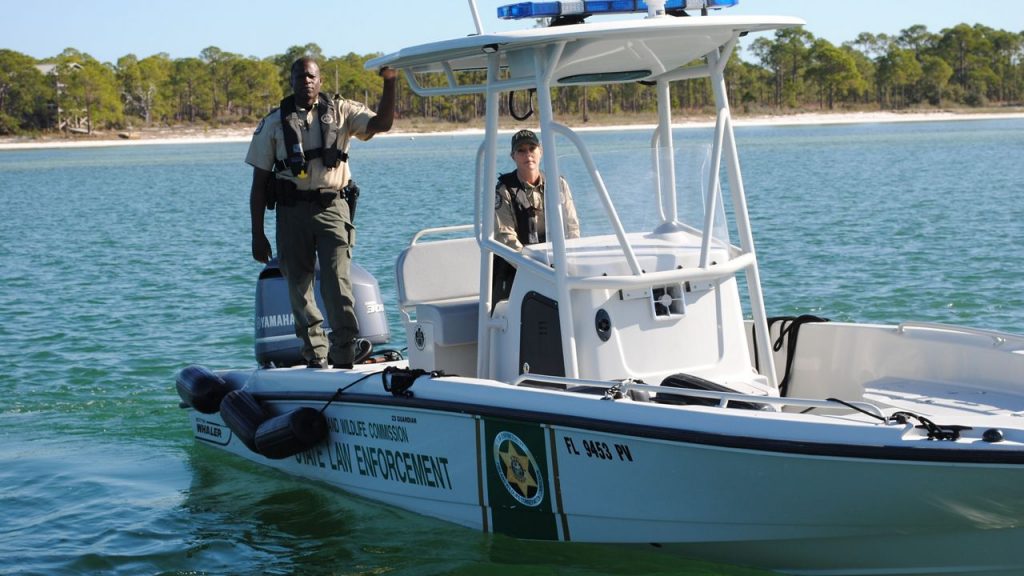
Penalties and Violations
In Florida, a boating accident report must be filed in certain situations. One such situation that requires a boating accident report is when an individual dies, suffers serious bodily injury, or when there is at least $2,000 in damage. It is crucial for boat operators to understand and adhere to the boating laws and regulations to avoid penalties and violations.
Violators who disregard the boating laws may face various consequences, including fines, noncriminal infractions, criminal boating violations, and even arrest. Fines for boating violations typically depend on the nature and severity of the offense. Noncriminal infractions are violations that are not considered criminal, and these may result in fines but do not incur a criminal record.
On the other hand, criminal boating violations are more severe and may involve actions such as reckless or careless operation of a vessel. Boat operators found guilty of criminal boating violations may be subject to arrest and could face criminal charges. Chapter 327 of the 2021 Florida Statutes provides more information on the rules and regulations surrounding boating and the penalties for violations.
It is essential for boaters to understand and follow the laws to ensure safety on the water and avoid penalties. By staying informed and operating vessels responsibly, boaters can prevent accidents and contribute to a safer boating environment for all.

Boating in Private Bodies of Water
In Florida, boating enthusiasts can enjoy a variety of water activities, even in private bodies of water such as private lakes or ponds. However, there are still legal requirements applicable for ensuring a safe and enjoyable experience.
Boating accidents can occur at any time, regardless of the size or location of the body of water. In Florida, it is important to be aware of when a written boating accident report is required. According to Statute 327.301, a boating accident report must be filed in cases involving injuries, fatalities, or a person disappearing, as well as when the accident causes over $2,000 in property damage.
Safety measures are essential for boating activities, whether on public or private water bodies. For instance, Florida law mandates that children under 6 years of age must wear Type I, II, or III USCG-approved life jackets or personal flotation devices (PFDs) at all times when cruising on vessels less than 26 feet in length source.
For individuals who have a criminal boating violation on their record, such as failure to report a boating accident or render aid, it is important to comply with mandatory education requirements outlined by the Florida Fish and Wildlife Conservation Commission (FWC).
In summary, boating in private bodies of water, like private lakes and ponds, in Florida requires adherence to specific regulations, most notably, the prompt filing of a boating accident report when applicable. Browsing the Florida Statutes and FWC website can provide more detailed information about the exact requirements based on your situation.
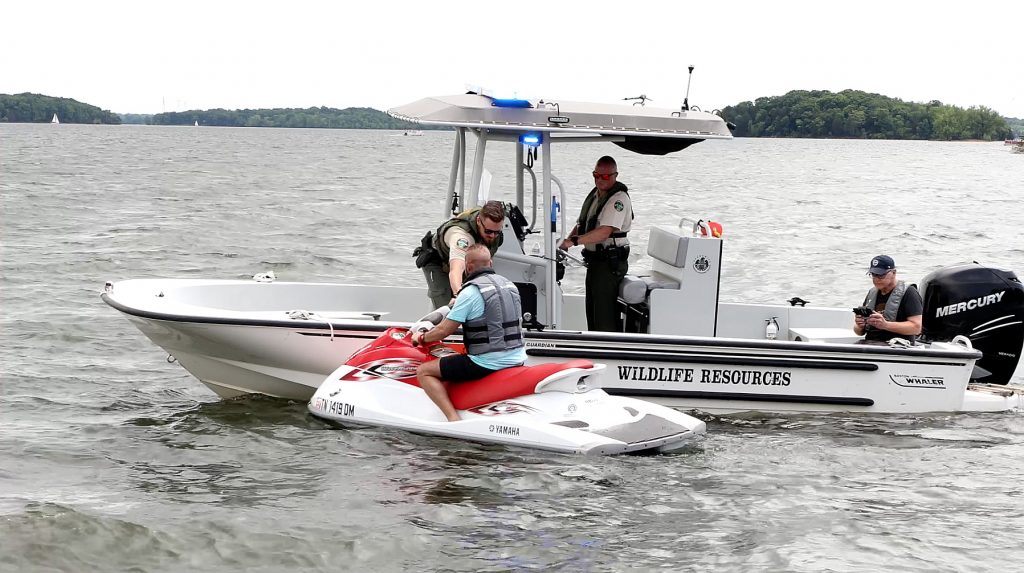
Special Cases of Watercrafts
In Florida, there are specific situations in which a boating accident report must be filed. Accidents involving various types of watercrafts, such as airboats, canoes, personal watercrafts, and recreational vessels, are subject to these reporting requirements. Being aware of these regulations can help ensure proper safety measures and compliance with Florida law.
For airboats and canoes, accident reporting requirements are similar to other watercrafts. A written boating accident report is mandatory when an accident results in injuries, fatalities, or when a person disappears from the vessel, indicating potential harm or drowning source. Additionally, the operator involved in a reportable accident must immediately notify the appropriate authorities, such as the Fish and Wildlife Conservation Commission or the county sheriff source.
Personal watercraft, also known as PWCs, face some additional regulations in Florida. For example, operators under the age of 14 are not allowed to drive PWCs, and those born after January 1, 1988, need proof of boater safety education source. Wearing an engine cutoff lanyard or "kill switch" is also essential and required by law for all PWC operators source.
When it comes to recreational vessels, Florida has specific safety requirements for children. Children under six years of age must wear a Type I, II, or III USCG-approved life jacket or personal flotation device (PFD) at all times while cruising on a vessel less than 26 feet in length source.
By adhering to these guidelines and regulations, operators of airboats, canoes, personal watercrafts, and recreational vessels can help ensure the safety of themselves and their passengers while enjoying Florida's beautiful waterways.

Boater Rights and Compensation
In Florida, a boating accident report is required to be filed in certain situations. One such scenario is when the accident results in injuries or fatalities, or when a person disappears as a result of the accident. Also, a report must be filed if there is property damage amounting to at least $2,000.
Understanding boater rights is essential for those involved in such unfortunate incidents. If a boater is injured due to another party's negligence, they may be entitled to compensation. Compensation can help cover medical expenses, loss of income, and other damages resulting from the accident.
The process of making a boating accident claim in Florida involves several steps. First, the injured party should seek immediate medical attention. It is crucial to document the injuries, as this information can be used in the legal claim. In addition to medical records, gathering evidence such as photographs, witness statements, and the boating accident report can help support the claim.
It's important to consult with an experienced boating accident attorney who can guide the injured party through the legal process and ensure their rights are protected. They will also help determine whether the case is worth pursuing and the amount of compensation that may be due.
While seeking compensation, the injured boater should also familiarize themselves with Florida's boating safety requirements, as certain regulations are age specific. It's essential to comply with these rules and regulations to avoid further complications in the claim process.
Florida's boating laws often change, with recent amendments in 2021 including the introduction of new vessel types and anchoring limitation areas. Staying up-to-date on these laws is crucial for maintaining compliance and avoiding accidents.
In summary, Florida boaters should be aware of their rights and the necessary steps to take in the event of a boating accident. Seeking compensation for damages may involve a complex legal process, but with knowledgeable guidance and an understanding of the state's boating laws, injured parties can protect their rights and receive the compensation they deserve.
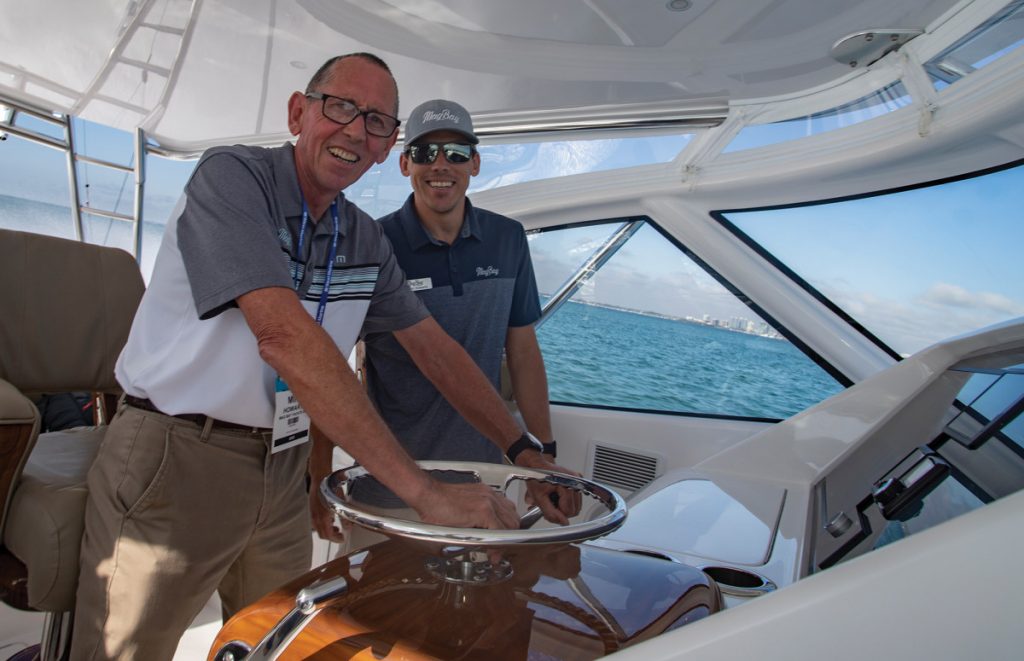
Boating and Non-residents
In Florida, it is important for both residents and non-residents to be aware of the situations that necessitate filing a boating accident report. A written boating accident report is required in scenarios where there are injuries or fatalities, a person disappears, or when the property damage exceeds $2,000 source. Boating accident reports must be filed within 48 hours for cases involving injuries and within 24 hours for incidents resulting in a death source.
Non-residents who plan to operate a boat in Florida must be aware of these regulations and adhere to them. Those who rent a vessel should ensure that the rental company provides them with all the necessary information and resources. Accidents can be reported to the Division of Law Enforcement, the county sheriff where the accident occurred, or the local police department source.
It should be noted that Florida has certain boating laws and requirements specific to non-residents as well. Non-residents who rent a boat in Florida and have a boating safety education card or certificate from their home state are exempt from the Florida mandatory boating safety education law source.
In summary, non-residents planning to rent a vessel or operate a boat in Florida must familiarize themselves with the state's boating laws and regulations, including the situations that require a boating accident report to be filed. By complying with these regulations, non-residents can ensure a safe and enjoyable boating experience while in Florida.

Frequently Asked Questions
What are the criteria for a reportable boating accident in Florida?
In Florida, a boating accident report must be filed if any of the following criteria are met: someone is injured and requires first aid, a vessel or equipment causes a death (within 24 hours of the occurrence), or someone disappears, and it is likely due to an injury or death source.
When and how should a boating accident be reported in Florida?
A boating accident in Florida must be reported within 48 hours if any of the specified criteria are met, or within 10 days if damages exceed a certain threshold source. The written report can be submitted to the Florida Fish and Wildlife Conservation Commission or other appropriate agency depending on the incident's location and jurisdiction.
What information is required in a Florida boating accident report?
A boating accident report in Florida should include information about the involved parties, such as their names and contact information, as well as details about the vessels involved. It should also describe the circumstances of the accident, including date, time, location, weather conditions, and the steps taken by the involved parties before, during, and after the accident.
What are the consequences of failing to report a boating accident in Florida?
Failing to report a boating accident in Florida can result in penalties, including fines, suspension or revocation of boating certifications, and possible criminal charges, depending on the severity of the accident and the level of negligence involved.
What role do natural habitats play in boating accidents in Florida?
Florida's diverse and intricate natural habitats, such as mangroves, seagrass beds, and coral reefs, can contribute to boating accidents through limited visibility, narrow passages, and shallow waters. Boaters should familiarize themselves with the local habitats and waterways to reduce the risk of accidents.
How can boaters prevent collisions in Florida waterways?
Boaters can prevent collisions in Florida waterways by following proper navigation rules, maintaining a safe speed appropriate for the conditions, using proper safety equipment, and staying vigilant at all times. Additionally, boaters should be aware of and respect local wildlife and their habitats to reduce the risk of accidents and minimize environmental impact.
Footnotes
Charlie is Editor-in-Chief of Sea Magazine